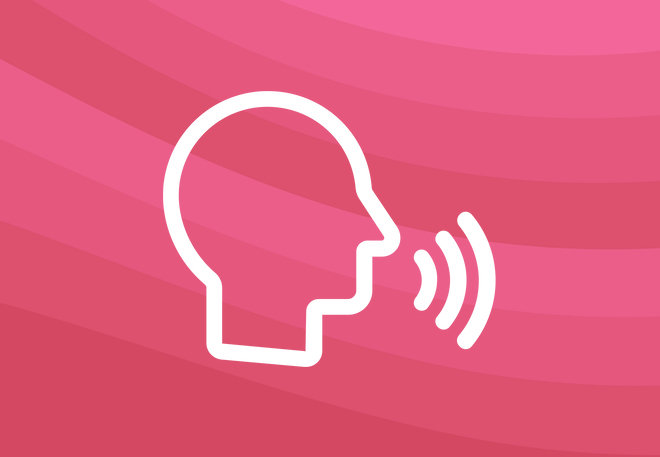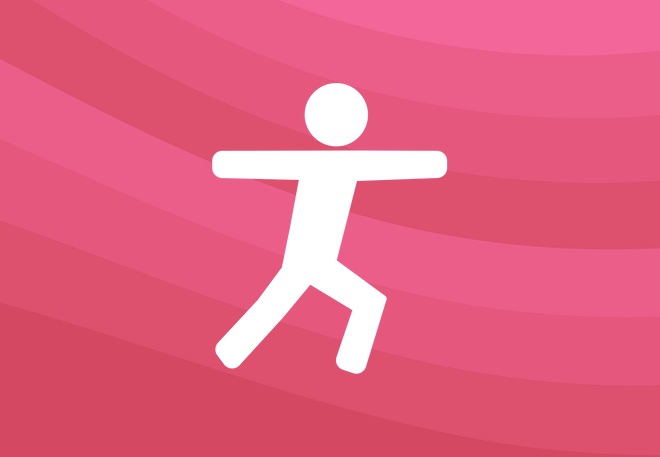
Fundamental movement knowledge
What is progression in Physical Education? According to our resident PE specialist, Lesley, it begins with fundamental movement knowledge.
(This post follows from previous posts about the organisation of knowledge and knowledge categories in art and design to form a subject schema in students’ long-term memories.)
Stability, locomotion and object control are the three foundations of fundamental movement knowledge. They need to become automatic so that students can move without having to think about it, much the same as decoding while reading needs to be automatic before fluency and comprehension are possible. Without mastery of fundamental movement knowledge, students will have little working memory to think about strategy and tactics, key components of physical education. The fundamental movement begins as generic knowledge and then develops into sport-specific knowledge. This is shown in the diagram below, taken from our new Curriculum Companion for PE:
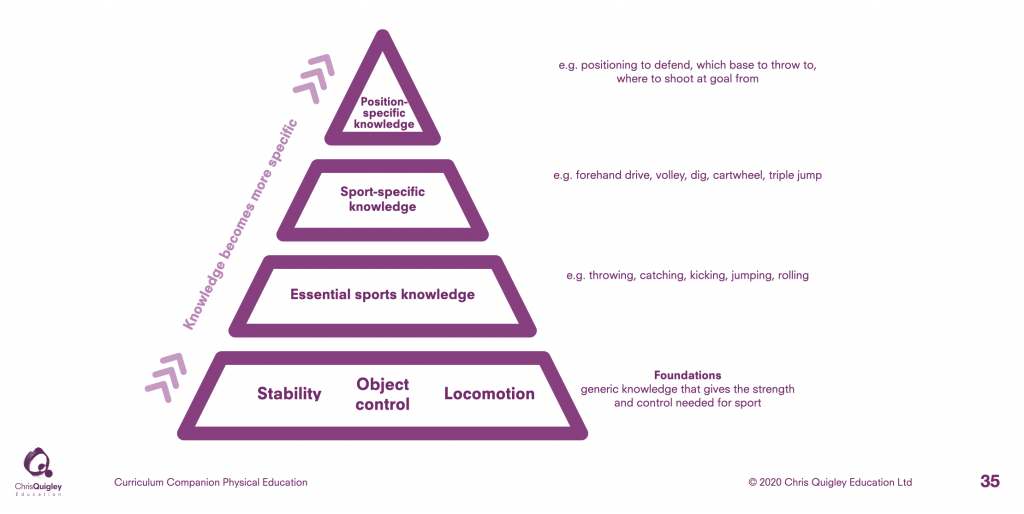
Fundamental movement knowledge in PE
This fundamental movement knowledge needs to be prioritised in Key Stage 1 but also re-visited in Key Stage 2 as often as possible, with the goal of automatic procedural fluency. To do this, Lesley has created knowledge webs to help teachers focus on each movement's key aspects. Below is an example of the fundamental stability movements, balancing on one leg:
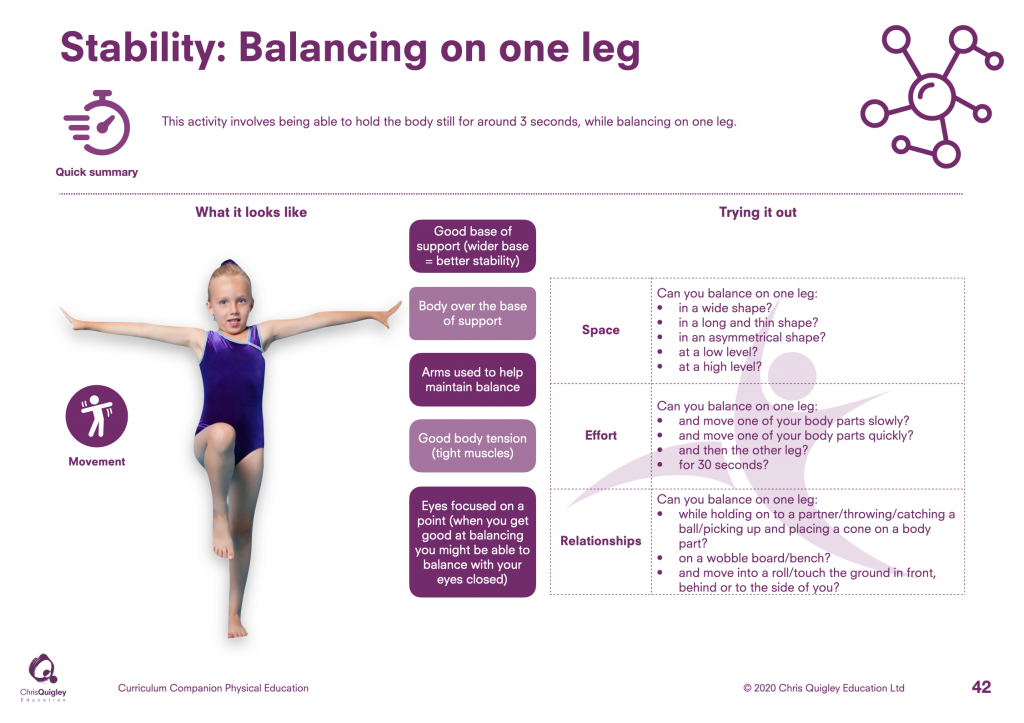
Fundamental movement knowledge: stability- balancing on one leg
For progression to be clear and precise, she has included POP tasks (Proof of Progress) for each Milestone (Milestone 1 is Key Stage 1; Milestone 2 is Lower Key Stage 2; Milestone 3 is Upper Key Stage 2) Here are the progression tasks for each Milestone:
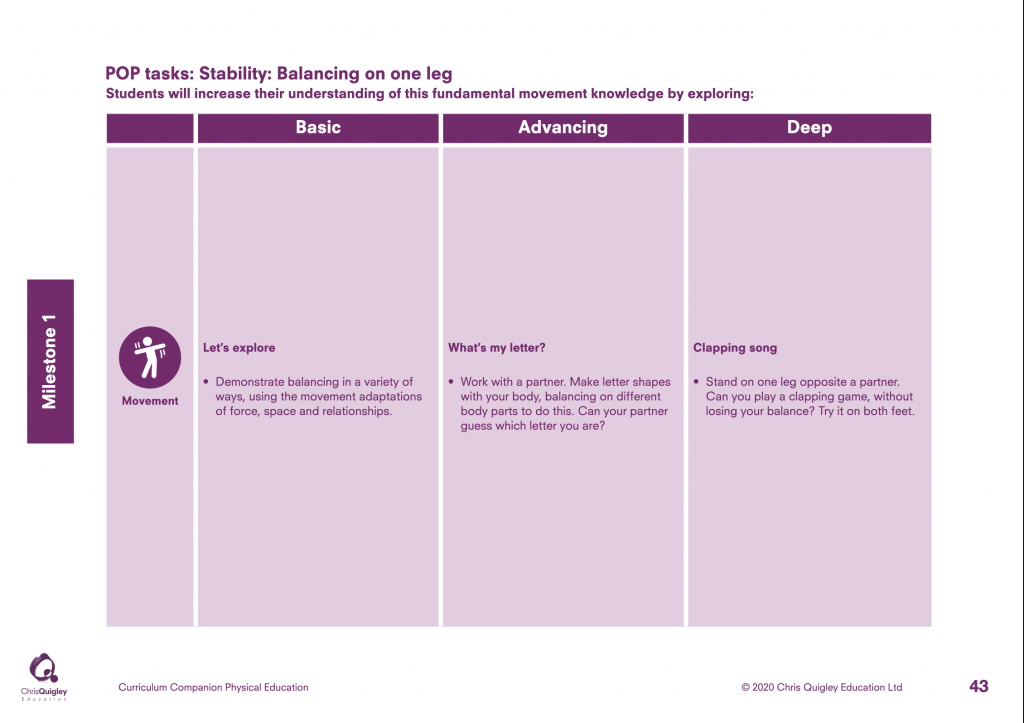
Progression Tasks, Milestone 1
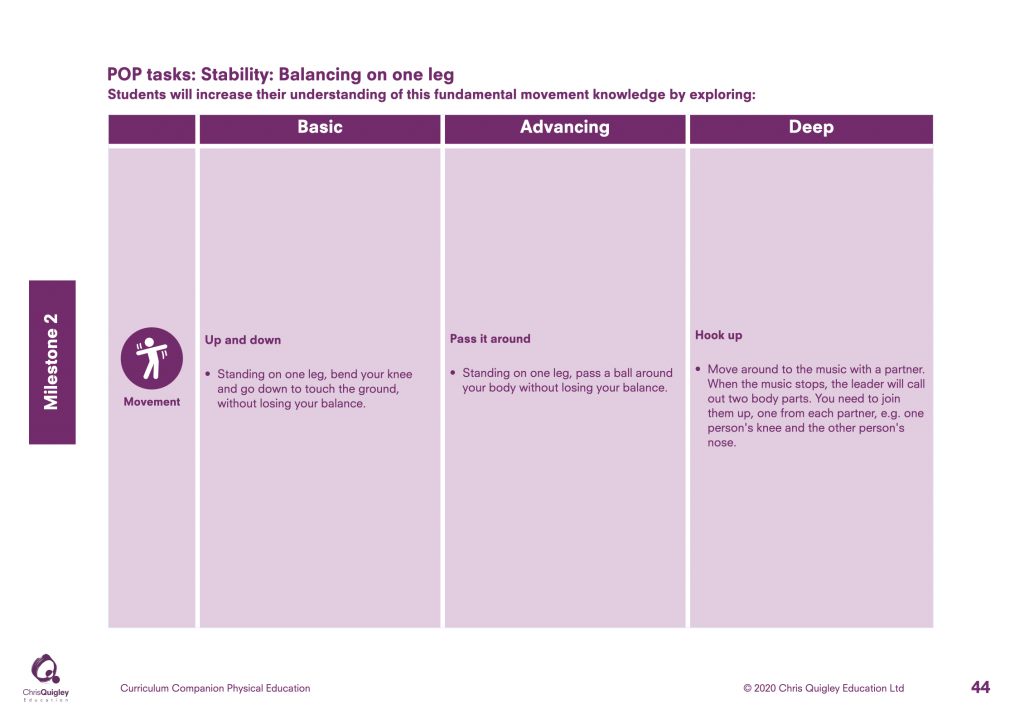
Progression tasks, Milestone 2
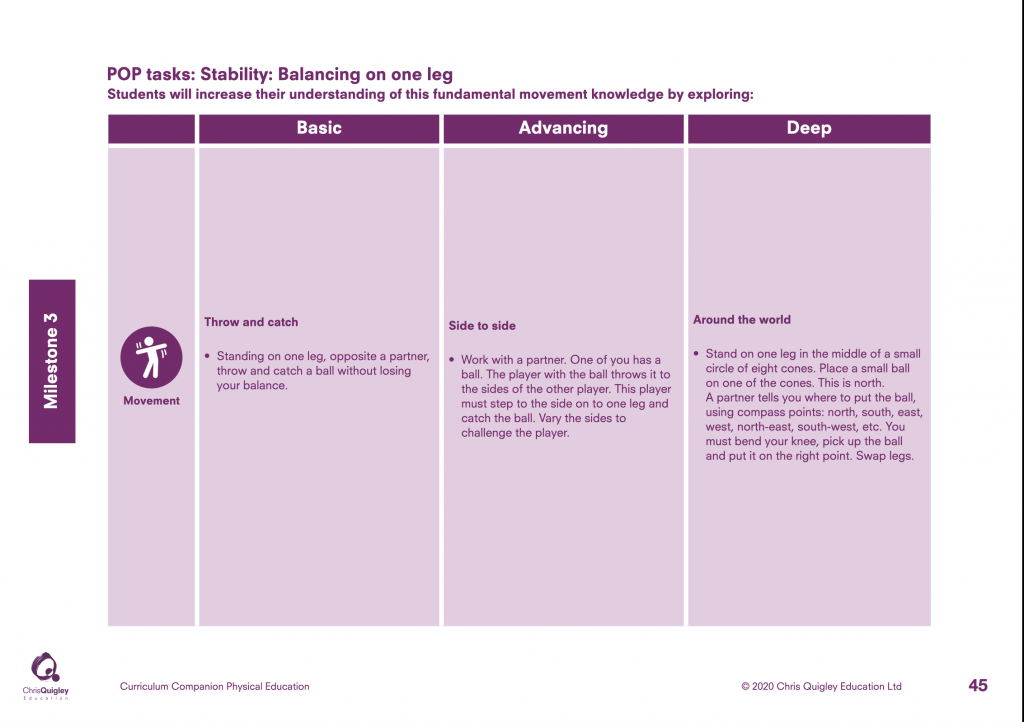
Progression tasks, Milestone 3
Sport-specific progression
Beyond the fundamental movement knowledge progression, sport-specific knowledge becomes essential to plan for. Here is an example of a knowledge web for a striking and fielding game (Give me five) in Key Stage 1:
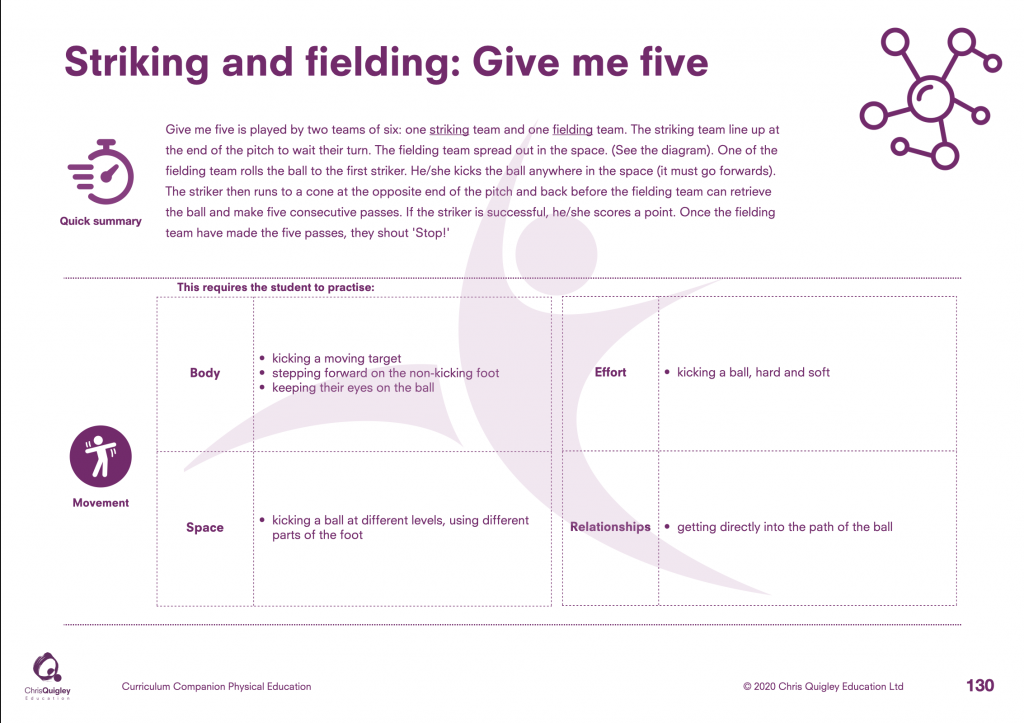
Knowledge web for movement Key Stage 1
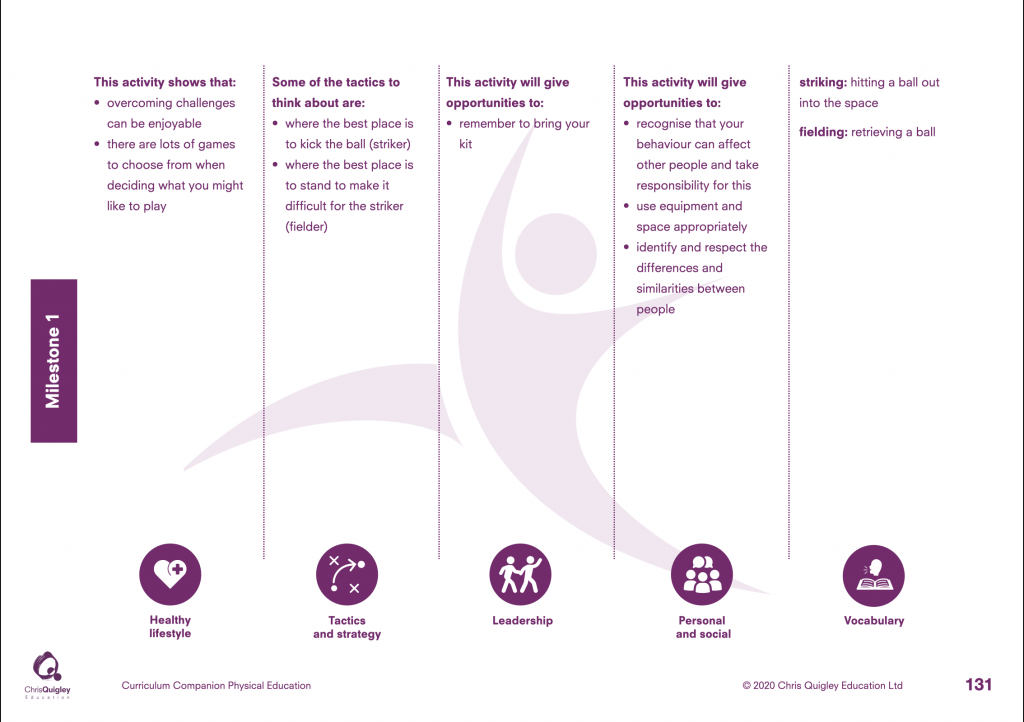
Knowledge web for healthy lifestyle, tactics and strategy, leadership, personal and social and vocabulary Key Stage 1
Here is a diagram showing how the game is played
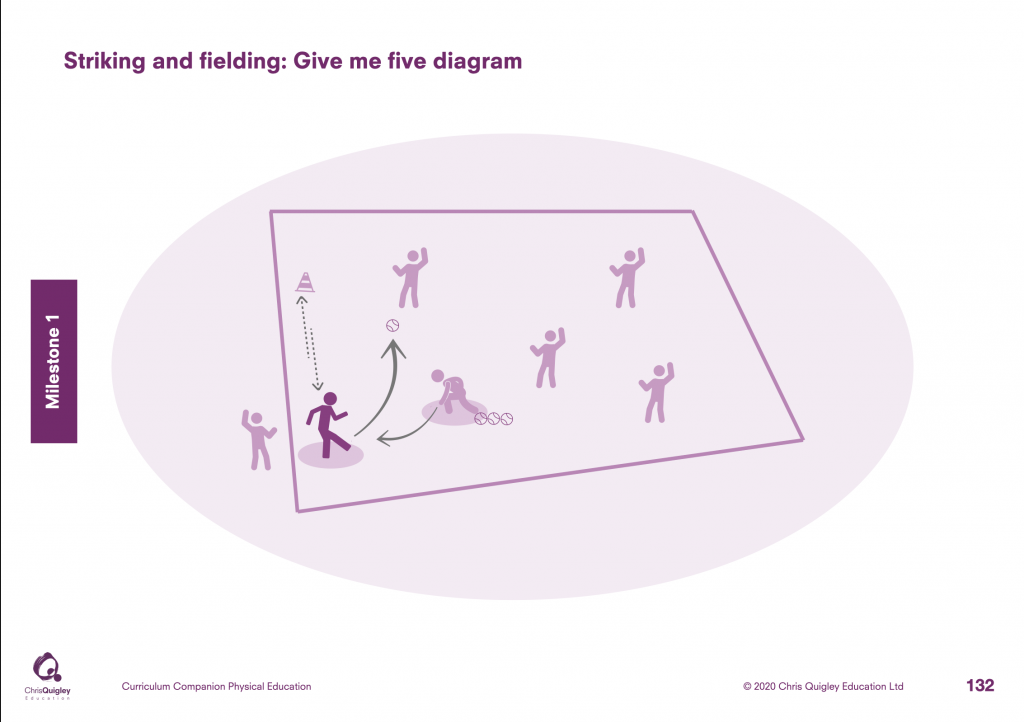
Give me five diagram
Here are the progression tasks:
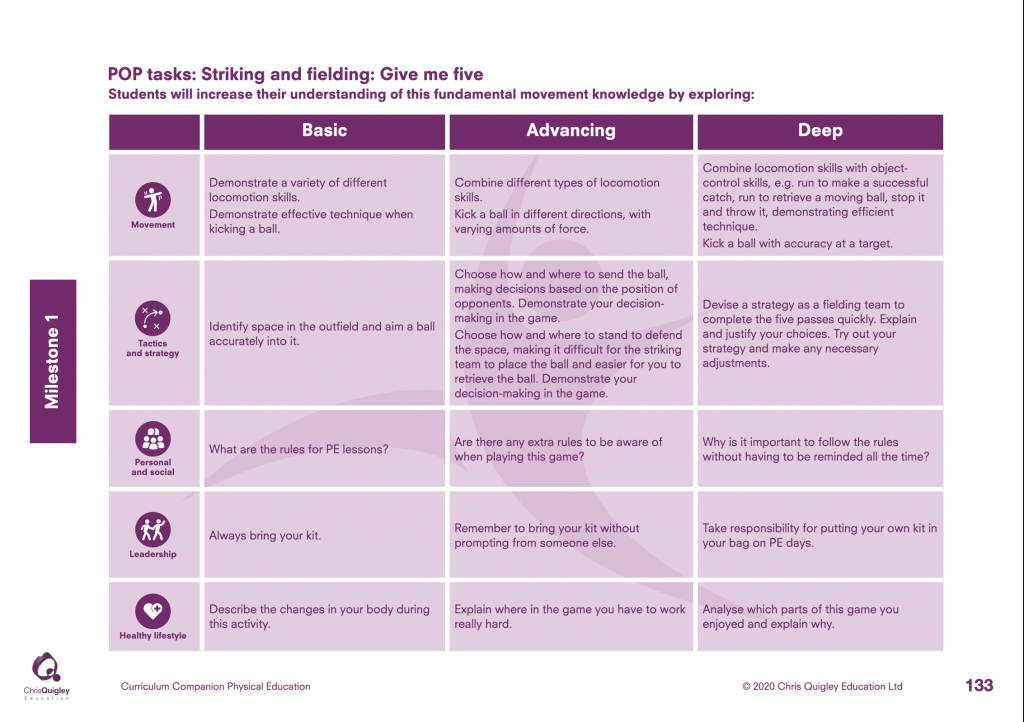
POP tasks for Give me Five
Here is a knowledge web for an Outdoor and Adventurous orienteering task in Key Stage 2:
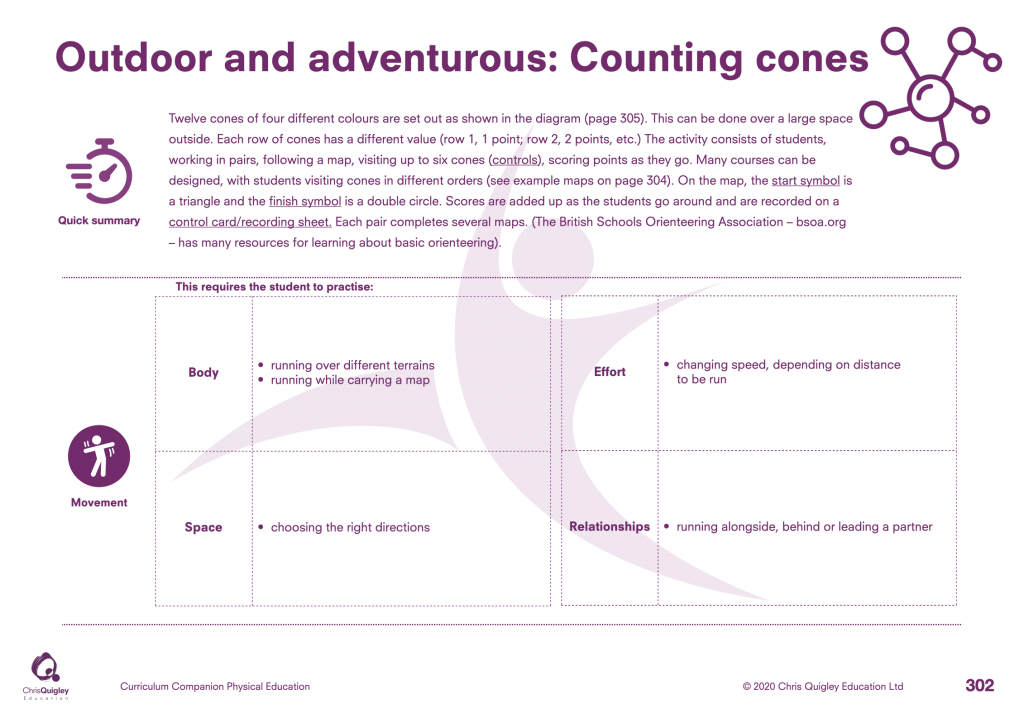
Movement knowledge Counting Cones KS1
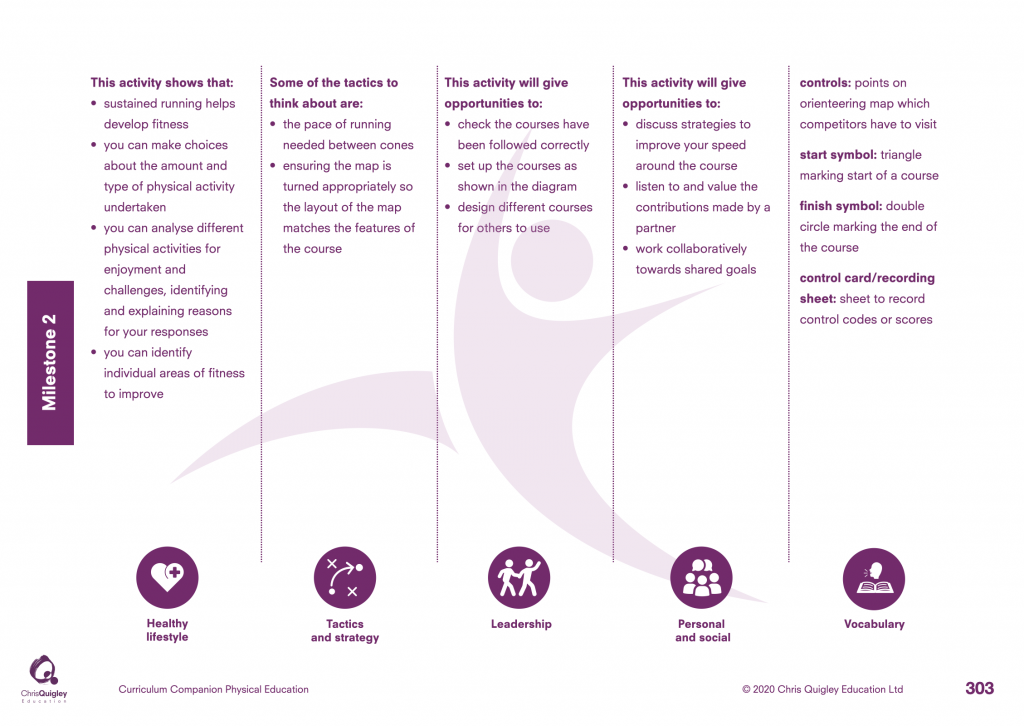
Knowledge web for healthy lifestyle, tactics and strategy, leadership, personal and social and vocabulary Key Stage 2
Here are some maps for students to follow:
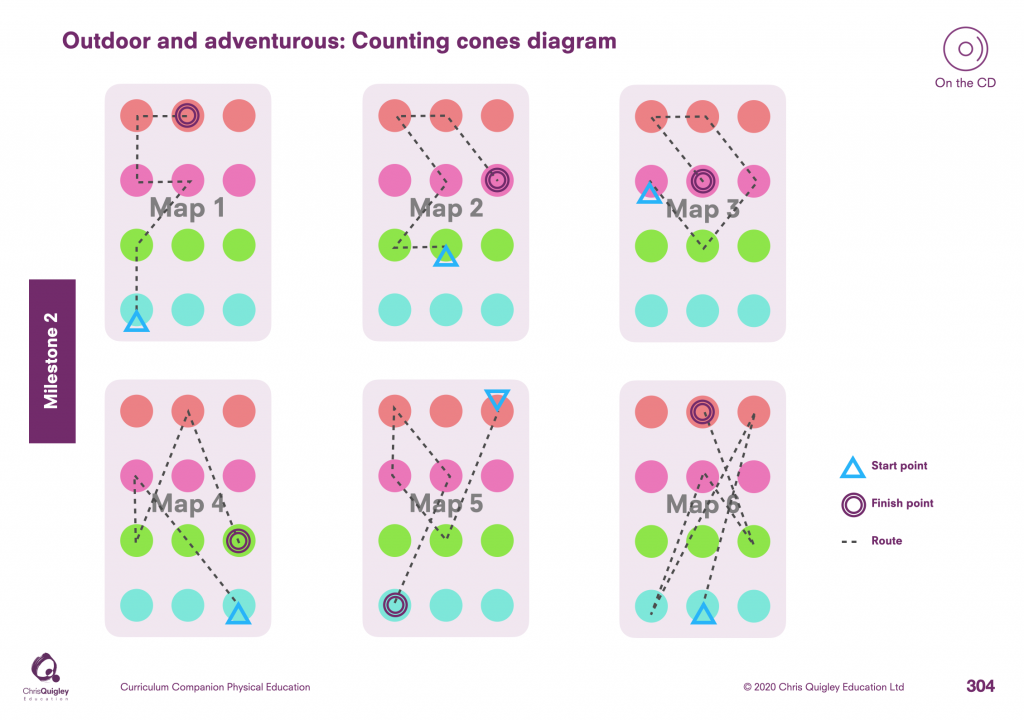
Counting Cones route maps
Here are the progression tasks:
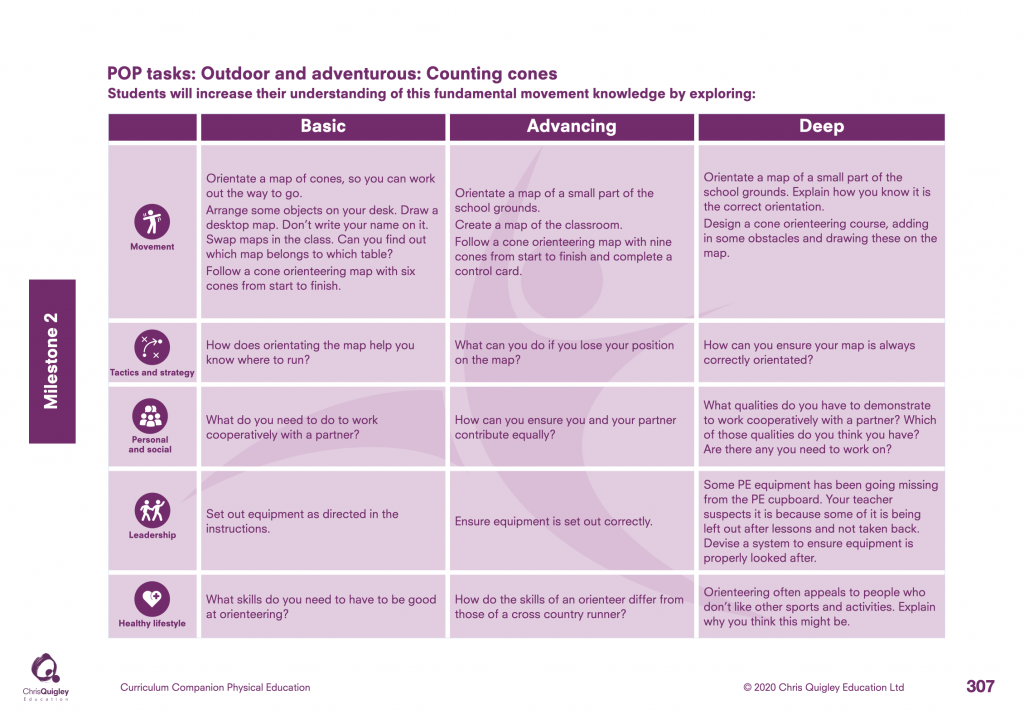
Counting Cones POP Tasks
So, whilst students may be busy in Physical Education lessons, are they making progress? If you’d like a complete resource packed with games, activities and progression tasks, find out more here.

.png)

